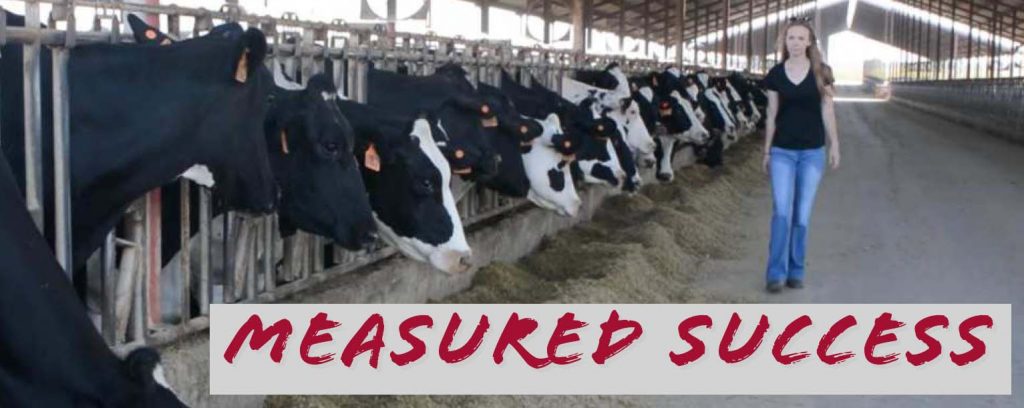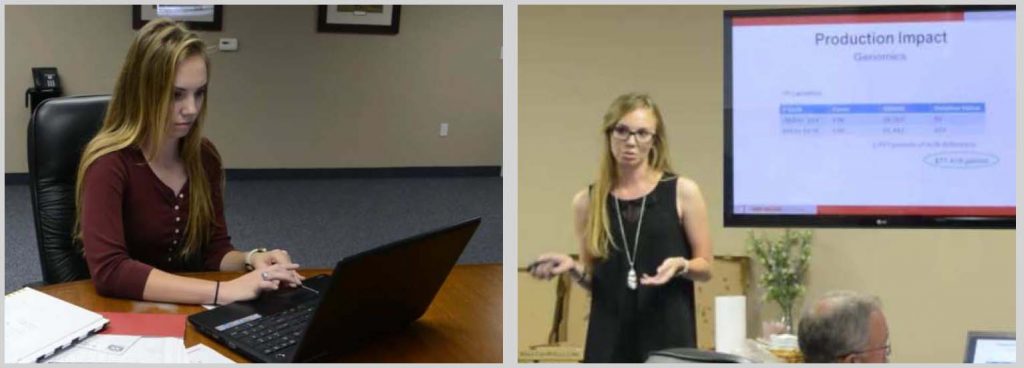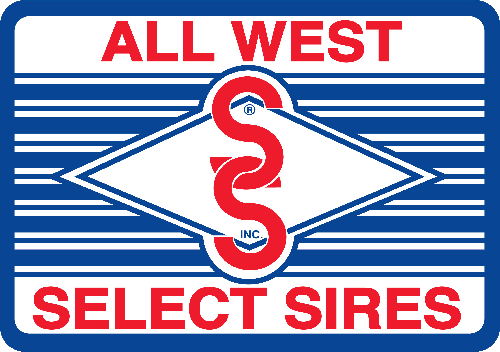
My name is Amber LaSalle and I am the All West/Select Sires Sales and Genetics Intern. I am a fourth-year student at Cal Poly, San Luis Obispo, where I major in Dairy Science, while minoring in Agricultural Communication. Originally, I was hired by Accelerated Genetics as their Sales and Service Intern. I was fortunate enough to have the All West cooperative take me on when Accelerated Genetics joined forces with Select Sires Inc. on July 1, 2017.
This past summer I promoted a vast array of trades or amenities that the A.I. industry offers to its customers. I rode along with sales representatives, Select Mating Service (SMS) evaluators, A.I. technicians, and was involved with Select Reproductive Solutions training. Through the Select Reproductive Solutions evaluations with customers, we pinpointed strengths and management attributes that could be improved in a herd on the reproductive side, for increased efficiencies. In SMS work, evaluators analyzed the physical confirmation of, typically, first lactation animals, who are mated to bulls that aim to improve individual physical flaws. SMS, also, takes into account what specific limits are on traits and inbreeding. I got to work with both these teams, in addition to spending time looking at daughters of certain bulls in our lineups. On the Jersey side, I recognized there were a lot of 14JE673 AVON daughters that were pretty good looking and also were hard working milk cows, as well. 7JE5004 Chrome, also, stood out to me as a sire to be on the lookout for as more of his daughter continue to develop.
The majority of my summer, however, was spent performing genetic audits for about 30 herds across California. A genetic audit is, basically, separating the top and bottom of your herd by looking at specific traits. We started by breaking down the milking cows, primarily, into four quartiles (or however many a customer desires), and then looking at incidences or various effects pertaining to these certain traits. One can identify the range and average of their herd to gauge where they are in relation with herds in their area and on a national scale. I included service sire averages, a cost benefit analysis on the traits that were analyzed, and if desired, a recommended service sire list.

The traits that I analyzed were mainly Milk, Protein and Fat pounds and percentage, Net Merit (on the Jersey side Cheese Merit), Daughter Pregnancy Rate, Cow Conception Rate, Heifer Conception Rate, Productive Life, and Somatic Cell Score. The other traits that I looked at circumstantially were Foot and Leg Composite, Udder Composite, and Livability.
Once you have identified traits as your herd’s strong suit or an area that needs improvement, you are able to move forward from there. One of the actions to take is to set a benchmark for your cows later on down the road. One can compare the monetary value there would be to invest more into specific traits rather than others. Regarding service sire selection, you can set barriers or limits for certain traits, as well. However, dairy producers tend to often focus on one trait and ignore the others. This leads to an overall stagnancy or a diminishing return due to the lack of focus on other traits, which in turn could potentially slow down overall genetic progression. Genetic audits help dairy producers see the big picture and allow the program specialists of All West/Select Sires to better assist with the genetic progression of their herd. Dairy producers that utilize this tool can take a step back and absorb all of the information to create a rational genetic plan for the future. Instead of creating a steep goal for one trait, genetic audits create attainable goals for multiple traits in order to find the sweet spot that the dairy producer envisions when creating a solid herd later on down the road.
In the herds I analyzed, I saw that overall they were particularly high in components and did decently in Somatic Cell Score. Depending on what the dairy producer is selecting for and what the herd’s goals are, a plan could be made after the genetic audit is performed. If you’re interested in a genetic audit, contact an All West/Select Sires representative in your area.
A dairy producer may think that they just need a good environment with adequate heat abatement and a good nutritionist by their side to succeed. However, the true component that limits one’s herd is genetics. It may only take weeks to see benefits from installing fans and soakers, changing your feed ration or bedding or adjusting sync protocols. Genetics takes years to see the turn around, but the investment is worth it in the long run.

 .
. .
. .
. .
. .
. .
.